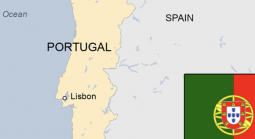Sports Betting Trends in Europe Ahead of 2026
Its hard to believe but 2025 will soon be in the rear view mirror. It has been a banner year for sports betting throughout Europe.
Projections suggest moderate growth in revenue over the next few years, driven primarily by mobile integrations.
It's not all rainbows and unicorns as the United Kingdom continues to do what it can to restrict the industry. In July, the Netherlands banned sports sponsorship by licensed online gambling providers (clubs, competitions, shirts, banners And both Belgium, along with Lithuania, imposed their own prohibitions related to sports gambling advertisements. In fact, that seemed to be among the top trends over the summer.
Sports betting in Iceland has witnessed banner growth over the last year. This has been driven primarily by the infusion of offshore gambling sites. Icelanders spend a significant sum each year on foreign wagering websites with figures cited in the ~€130-150 million) range. The Italian sports betting market is widely expected to witness the most growth over the remainder of this decade.
UK Reforms
For years, sports gambling advertisements and league sponsorship deals in the United Kingdom have gone mostly unchecked.
Finally, this past July, the UK introduced a series of reforms that include a voluntary ban on shirt sponsorships, an advertising code of conduct and restrictions on celebrity endorsements.
Additionally, a portion of sponsorship inventory must be used to educate the public in regard to safer gambling practices.
Additionally, The UK Gambling Commission will introduce a new financial penalties framework on 10 October 2025 that will better explain the reasons for violations and fines against gambling firms.
Other European Nations Focused on Sports Betting Sponsorship Restrictions
As noted above, The Netherlands and Lithuania have begun to take seriously the excessive advertising of sports betting on television and in other mediums.
The Netherlands approach, adapted in July of this year, bans sports sponsorship by licensed online gambling providers on team shirts. This follows an outright ban on billboards and other mediums.
Lithuania is planning a full ban on sports betting advertisements beginning in January of 2028. Certainly a lot can change between now and then but restrictions will be enacted beforehand. These include a gradual phase-out of such ads.
Italy's Explosive Sports Gambling Growth
Multiple factors have contributed to the growth in popularity of sports betting in Italy.
According to AGIMEG, the online sports betting gross gaming revenue (GGR) in Italy was about €1.3 billion in 2022, rising to about €1.5 billion in 2023.
It certainly doesn't hurt that Italy is one of the world’s most successful football nations featuring a solid Serie A fanbase to go along with four World Cup wins. Considering the FIFA World Cup is upon us, Italy should experience a banner year when it comes to betting on sports in 2026.
The German Sports Betting Market
Figures from 2023 show that Germans gambled roughly €13.7 billion on sports that year.
Estimates suggest approximately GGR at €400-600 million going towards the unregulated market.
2026 World Cup Set to Fuel Gambling
One can anticipate 2026 to see record betting on sports courtesy of the FIFA World Cup.
A nation's odds of winning will most certainly drive more wagering from that particular country.
In case you were wondering, these were the odds to win the 2026 FIFA World Cup for varioius European nationas as of late September 2025:
Spain 5-1
France 6-1
England 7-1
Germany 9-1
Portugal 12-1
Netherlands 18-1
Italy 23-1
Belgium 29-1
Croatia 44-1
Denmark 50-1
Among these nations, a 2022 survey found that over 37% of people in Portugal had placed a sports bet in the previous 12 months. This trend should certainly be boosted by Portugual's favorable World Cup odds in 2026.
- Alistair Prescott, Gambling911.com














